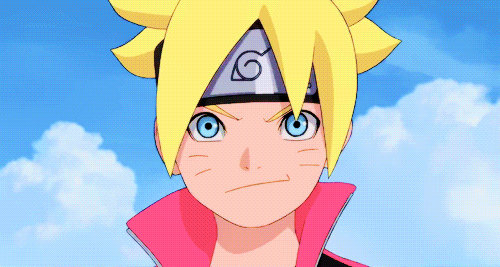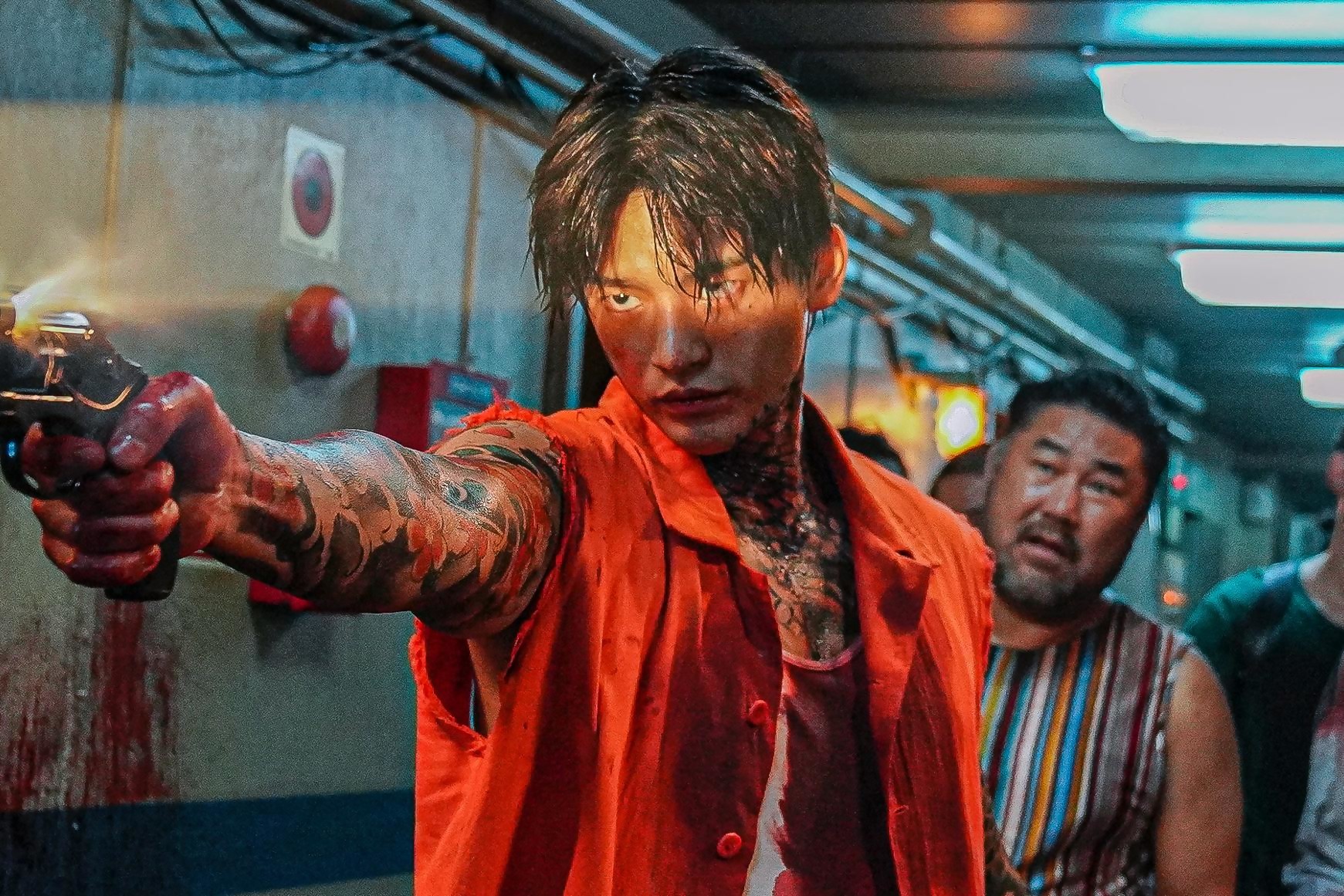In Japan as well as in France, manga can be an unexpected springboard for the popularity of a discipline. Manga such as Slam Dunk, Eyeshield 21 or Attacker You! (Jeanne and Serge in French version) have resulted in a growing popularity of these sports. The Japanese spirit integrating mainly universal values such as adversity, perseverance or the taste for effort serves as a basis for the support of the reader, often male. But what about the specific quality of the works? What are the codes and originalities of this "subgenre"? And what are the different facets and themes that these works can deal with? Through this top, we will address all these notions.
1. Slam Dunk
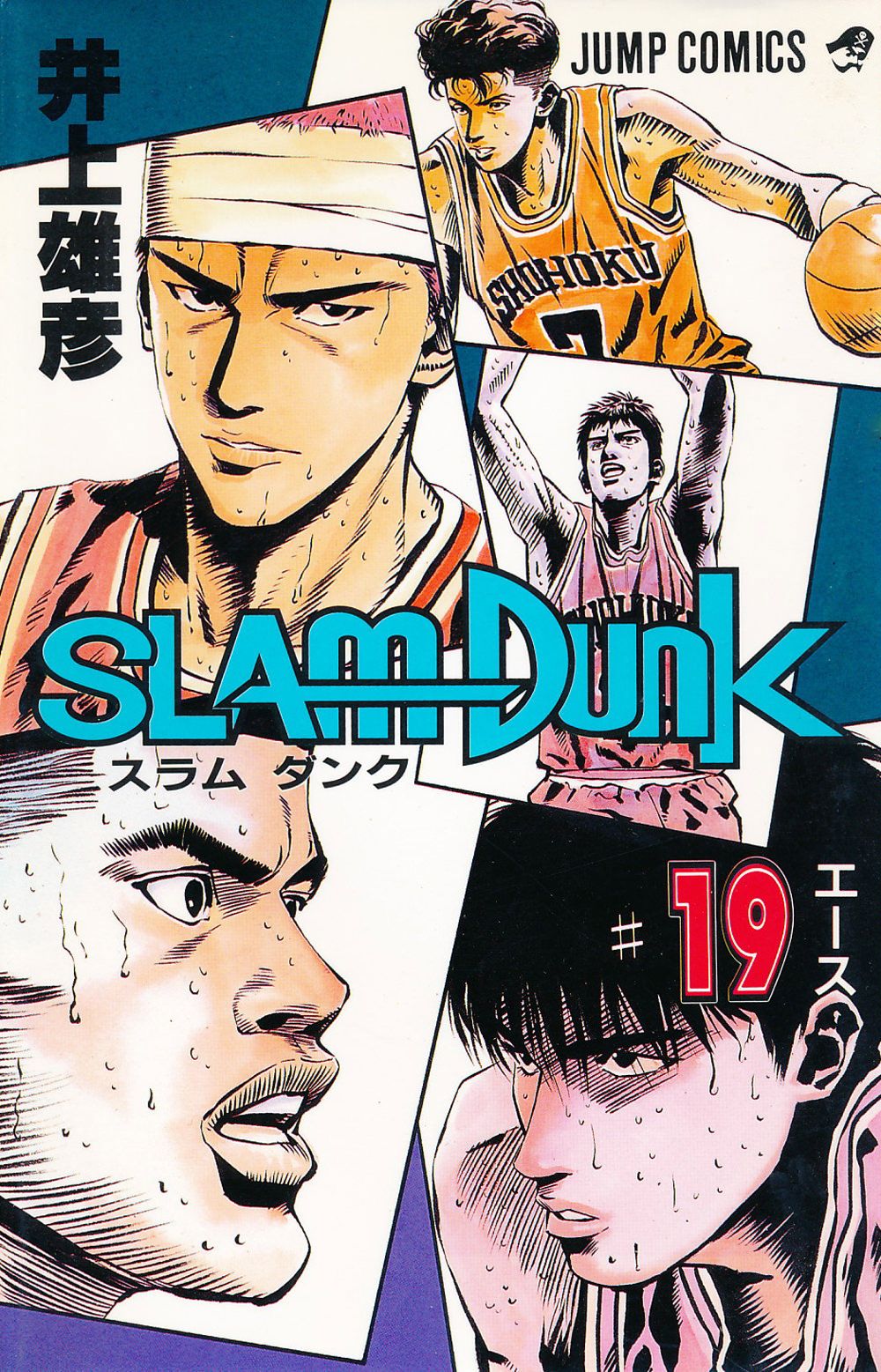 Slam Dunk publié in the magazine Weekly Shônen Jump in 1990 by the famous Takehiko Inoue, is the basketball manga par excellence. This masterpiece of 31 volumes and sold more than 157 million copies, is one of the best-selling comics in the world ! Synopsis: Sakuragi Hanamichi, a slightly goofy high school student with great physical strength, falls in love with a naïve girl, Haruko Akagi, who is passionate about basketball. He then decides to embark on this sport of which he has no knowledge to seduce his sweetheart. The first volumes of the series generate a long set-up in order to introduce the characters and give them depth. The strength of the work lies in these encounters between atypical characters and strong characters. They are inspired by great NBA players such as Michael Jordan, Magic Johnson or Larry Bird. On the other hand, strong emotions are omnipresent and the intensity of the matches carries us like a double-step towards the basket. In addition, the author will lead to a striking graphic evolution over the volumes. But even more, Slam Dunk is an introduction to basketball that made him popular in Japanese high school clubs in the 90s. The humorous atmosphere and adversity make it possible to reach a wide audience, both girls and boys. The Slam Dunk Major Five is one of the most significant teams in the history of sports shōnen.
Slam Dunk publié in the magazine Weekly Shônen Jump in 1990 by the famous Takehiko Inoue, is the basketball manga par excellence. This masterpiece of 31 volumes and sold more than 157 million copies, is one of the best-selling comics in the world ! Synopsis: Sakuragi Hanamichi, a slightly goofy high school student with great physical strength, falls in love with a naïve girl, Haruko Akagi, who is passionate about basketball. He then decides to embark on this sport of which he has no knowledge to seduce his sweetheart. The first volumes of the series generate a long set-up in order to introduce the characters and give them depth. The strength of the work lies in these encounters between atypical characters and strong characters. They are inspired by great NBA players such as Michael Jordan, Magic Johnson or Larry Bird. On the other hand, strong emotions are omnipresent and the intensity of the matches carries us like a double-step towards the basket. In addition, the author will lead to a striking graphic evolution over the volumes. But even more, Slam Dunk is an introduction to basketball that made him popular in Japanese high school clubs in the 90s. The humorous atmosphere and adversity make it possible to reach a wide audience, both girls and boys. The Slam Dunk Major Five is one of the most significant teams in the history of sports shōnen.
"You don't have to love basketball to read Slam Dunk, it' s Slam Dunk that will make you love basketball."
2. Hajime no Ippo
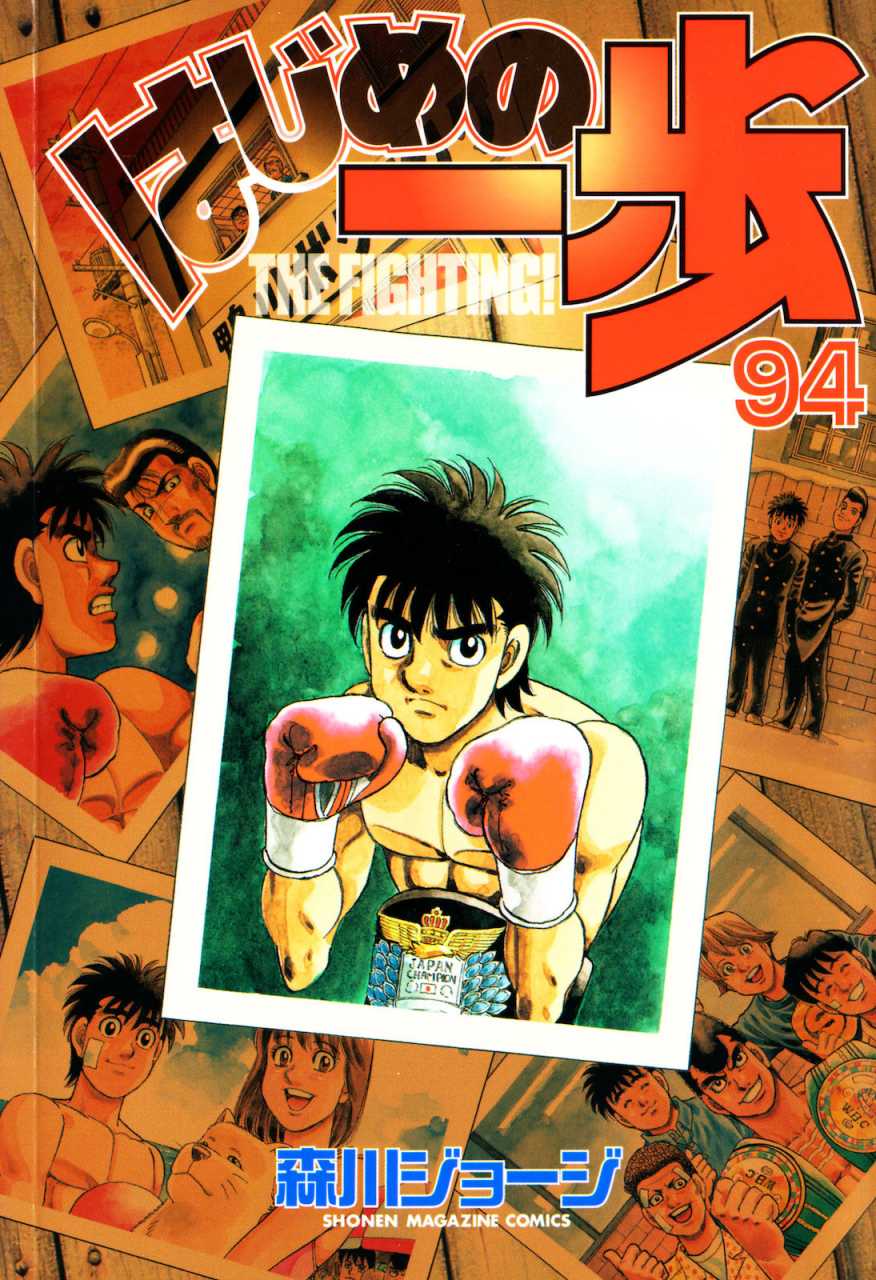 Hajime no Ippo literally "The First Step" is a manga by George Morikawa published in 1989 in Weekly Shônen Magazine. It is the most popular boxing manga. Synopsis: The story tells the beginnings, rise and career of a boxer, Ippo Makunouchi. This young high school student, martyred by his classmates will be saved by a boxer, Takamura Mamoru, who will take him to his professional boxing club. Ippo, driven by the desire to become stronger, will be surprised by the passion for boxing that drives him. The manga is based on a palette of colorful characters, various styles and techniques inspired by real boxing techniques or legendary boxers like Mike Tyson or Jack Dempsey make Hajime no Ippo, a classic of sports manga. But that's not all, the ambition of the work, to transcribe the life of a boxer in the professional world and his personal evolution is perfectly controlled. The relationship to the passing of time is remarkably well managed by the author and makes it possible to illustrate the evolution of the characters, especially secondary ones. Another particularity, the very varied characters, from the veteran boxer to the novice genius. Each fight and opponent is particular, unique. Ultimately, the manga is presented as a documentary about boxing through the career of a boxer, who will fall in love with this noble sport.
Hajime no Ippo literally "The First Step" is a manga by George Morikawa published in 1989 in Weekly Shônen Magazine. It is the most popular boxing manga. Synopsis: The story tells the beginnings, rise and career of a boxer, Ippo Makunouchi. This young high school student, martyred by his classmates will be saved by a boxer, Takamura Mamoru, who will take him to his professional boxing club. Ippo, driven by the desire to become stronger, will be surprised by the passion for boxing that drives him. The manga is based on a palette of colorful characters, various styles and techniques inspired by real boxing techniques or legendary boxers like Mike Tyson or Jack Dempsey make Hajime no Ippo, a classic of sports manga. But that's not all, the ambition of the work, to transcribe the life of a boxer in the professional world and his personal evolution is perfectly controlled. The relationship to the passing of time is remarkably well managed by the author and makes it possible to illustrate the evolution of the characters, especially secondary ones. Another particularity, the very varied characters, from the veteran boxer to the novice genius. Each fight and opponent is particular, unique. Ultimately, the manga is presented as a documentary about boxing through the career of a boxer, who will fall in love with this noble sport.
"Not all hard-working people are rewarded. However. Everyone who succeeded worked hard! »
3. REAL
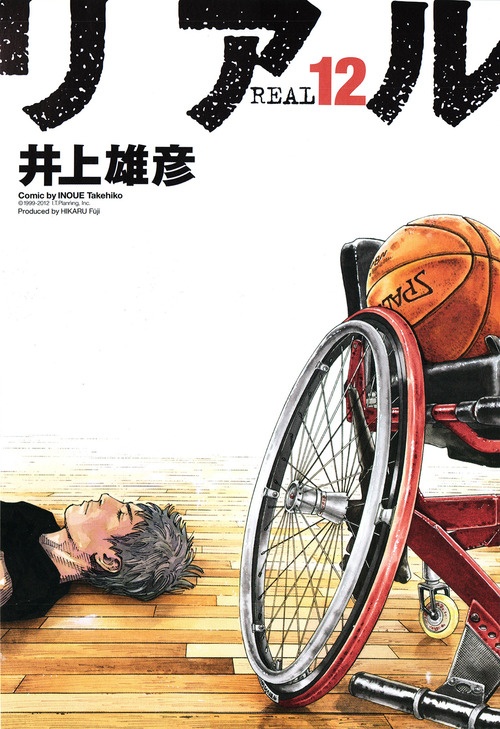 REAL, Takehiko Inoue 's third series pre-published in 1999 in Young Jump magazine, is a manga about Handibasket. Comprising 15 volumes, the work tackles a subject that is little highlighted and meets a notable success with more than 16 million copies sold. Synopsis: Tomomi Nomiya is a young high school student passionate about basketball but not finding his way. Hisanobu Takahashi is a leader, arrogant and talented. And Kiyoharu Togawa, a leg amputee, is a handibasket player. Three high school students, three different destinies but yet intrinsically linked to the same passion, to the same subject. This manga allows Takehiko Inoue to confirm his passion for basketball and to deepen the importance of human values, to add more sensitive subjects such as depression, acceptance, inspiration, frustration or self-confidence. With three different points of view and three different experiences, disability allows one to rise humanly. Questioning characters and ambition are often ambiguous subjects in this work. The drawings of the work are so powerful that they allow to transcribe the strong emotions, our heart seems caught up in this rollercoaster of feelings. There is also an awareness message around disability but it is not stereotypical or kitsch. REAL is an undeniably successful and fiercely optimistic work.
REAL, Takehiko Inoue 's third series pre-published in 1999 in Young Jump magazine, is a manga about Handibasket. Comprising 15 volumes, the work tackles a subject that is little highlighted and meets a notable success with more than 16 million copies sold. Synopsis: Tomomi Nomiya is a young high school student passionate about basketball but not finding his way. Hisanobu Takahashi is a leader, arrogant and talented. And Kiyoharu Togawa, a leg amputee, is a handibasket player. Three high school students, three different destinies but yet intrinsically linked to the same passion, to the same subject. This manga allows Takehiko Inoue to confirm his passion for basketball and to deepen the importance of human values, to add more sensitive subjects such as depression, acceptance, inspiration, frustration or self-confidence. With three different points of view and three different experiences, disability allows one to rise humanly. Questioning characters and ambition are often ambiguous subjects in this work. The drawings of the work are so powerful that they allow to transcribe the strong emotions, our heart seems caught up in this rollercoaster of feelings. There is also an awareness message around disability but it is not stereotypical or kitsch. REAL is an undeniably successful and fiercely optimistic work.
"We fall to better learn to get up. »
4. Ping pong
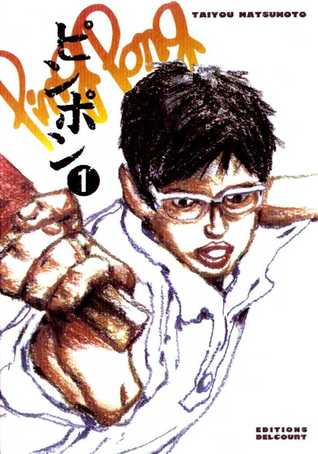 Pre-published in Big Comic Spirits in 1996, Ping Pong by master Taiyô Matsumoto, a major author of the manga world, is a story in five volumes. The author has a particular trait of influence manga and Franco-Belgian comics and has an extraordinary graphics. Synopsis: Smile and Peko have been friends since childhood and practice ping-pong. However, their character is diametrically opposed even in the discipline they exercise. One is very serious and without ambition, the other extroverted and a little dreamy. One day, a Chinese player named Wenga, will rekindle Smile's flame and extinguish Peko's. Then follow two ambiguous paths where success and failure take a central place. Taiyō Matsumoto is known for his treatment of childhood. It takes up the concept of the simple duo of complementary and opposite heroes evolving over time. But the psychology and maturation of the characters plunge us into more than just ping pong. There is an ambiguous side to Ping Pong, filled with optimism and cruelty. Why play table tennis when we lack talent? Why continue when victory makes no sense? These may be unanswered questions. The visual work changes the perception of classic sports manga. T he angles of view, the cutting of the boards and the gestures are of remarkable accuracy as well as the expressions of the characters. The use of onomatopoeias close to graffiti energize the boxes. The anime is an artistic nugget and transcribes well the particular style of the author!
Pre-published in Big Comic Spirits in 1996, Ping Pong by master Taiyô Matsumoto, a major author of the manga world, is a story in five volumes. The author has a particular trait of influence manga and Franco-Belgian comics and has an extraordinary graphics. Synopsis: Smile and Peko have been friends since childhood and practice ping-pong. However, their character is diametrically opposed even in the discipline they exercise. One is very serious and without ambition, the other extroverted and a little dreamy. One day, a Chinese player named Wenga, will rekindle Smile's flame and extinguish Peko's. Then follow two ambiguous paths where success and failure take a central place. Taiyō Matsumoto is known for his treatment of childhood. It takes up the concept of the simple duo of complementary and opposite heroes evolving over time. But the psychology and maturation of the characters plunge us into more than just ping pong. There is an ambiguous side to Ping Pong, filled with optimism and cruelty. Why play table tennis when we lack talent? Why continue when victory makes no sense? These may be unanswered questions. The visual work changes the perception of classic sports manga. T he angles of view, the cutting of the boards and the gestures are of remarkable accuracy as well as the expressions of the characters. The use of onomatopoeias close to graffiti energize the boxes. The anime is an artistic nugget and transcribes well the particular style of the author!
"No, if I let him get to me, it's over. If I tremble, I'll lose! If I fear it, I die! »
5. Eyeshield 21
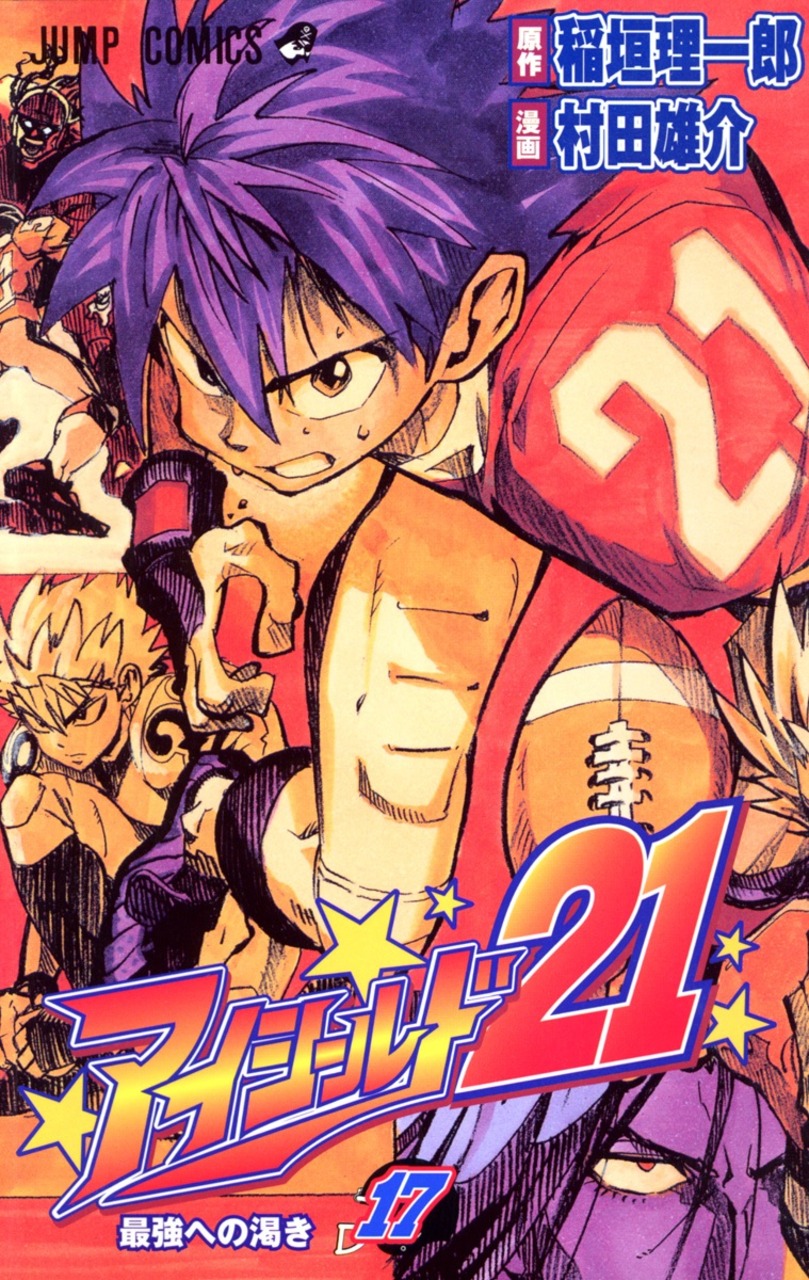 In 2002, the duo Yusuke Murata and Riichirō Inagaki created Eyeshield 21, a manga based on American football. It is pre-published in the Weekly Shônen Jump and has 37 volumes. Murata is drawing and Inagaki is writing. They popularized the sport in Japan and became pillars of the magazine. Synopsis: Kobayakawa Sena is a frail and fearful high school student. By constantly acting as a stooge for others, he acquires incredible speed. He was immediately spotted by Yoichi Hiruma the quarterback and captain of the Deimon Devil Bats team. He quickly became the team's running back and entered the race to participate in the Xmas Bowl, Japan's inter-high school national final. Eyeshield 21 is a perfect cocktail mixing suspense, humor and characters with a pencil stroke that will continue to evolve! The one-upmanship of special effects is one of the big strengths of the media, each team has its particularity and qualities. The duo always manages to mix reality of techniques / tactics and one-upmanship in order to highlight them while they do not know the subject well at the beginning! This results in epic and spectacular "clashes". Depending on the opponent, each member of the team is more or less highlighted despite the large number of players but the diversity of the sport allows it. And how to talk about Eyeshield 21 without mentioning its two pillars of the story: Yoichi Hiruma and Kobayakawa Sena. One veteran, evil and always optimistic, the other naïve but discovering new feelings and challenges in him such as adversity, rivalry and respect that he never had the opportunity to know. Since the beginning of publication at Glénat in France, the number of licensees has increased considerably and this is no coincidence.
In 2002, the duo Yusuke Murata and Riichirō Inagaki created Eyeshield 21, a manga based on American football. It is pre-published in the Weekly Shônen Jump and has 37 volumes. Murata is drawing and Inagaki is writing. They popularized the sport in Japan and became pillars of the magazine. Synopsis: Kobayakawa Sena is a frail and fearful high school student. By constantly acting as a stooge for others, he acquires incredible speed. He was immediately spotted by Yoichi Hiruma the quarterback and captain of the Deimon Devil Bats team. He quickly became the team's running back and entered the race to participate in the Xmas Bowl, Japan's inter-high school national final. Eyeshield 21 is a perfect cocktail mixing suspense, humor and characters with a pencil stroke that will continue to evolve! The one-upmanship of special effects is one of the big strengths of the media, each team has its particularity and qualities. The duo always manages to mix reality of techniques / tactics and one-upmanship in order to highlight them while they do not know the subject well at the beginning! This results in epic and spectacular "clashes". Depending on the opponent, each member of the team is more or less highlighted despite the large number of players but the diversity of the sport allows it. And how to talk about Eyeshield 21 without mentioning its two pillars of the story: Yoichi Hiruma and Kobayakawa Sena. One veteran, evil and always optimistic, the other naïve but discovering new feelings and challenges in him such as adversity, rivalry and respect that he never had the opportunity to know. Since the beginning of publication at Glénat in France, the number of licensees has increased considerably and this is no coincidence.
"It is the difference in mental strength that decides whether discouragement finds its place in the head of one side or the other. »
6. Initial D
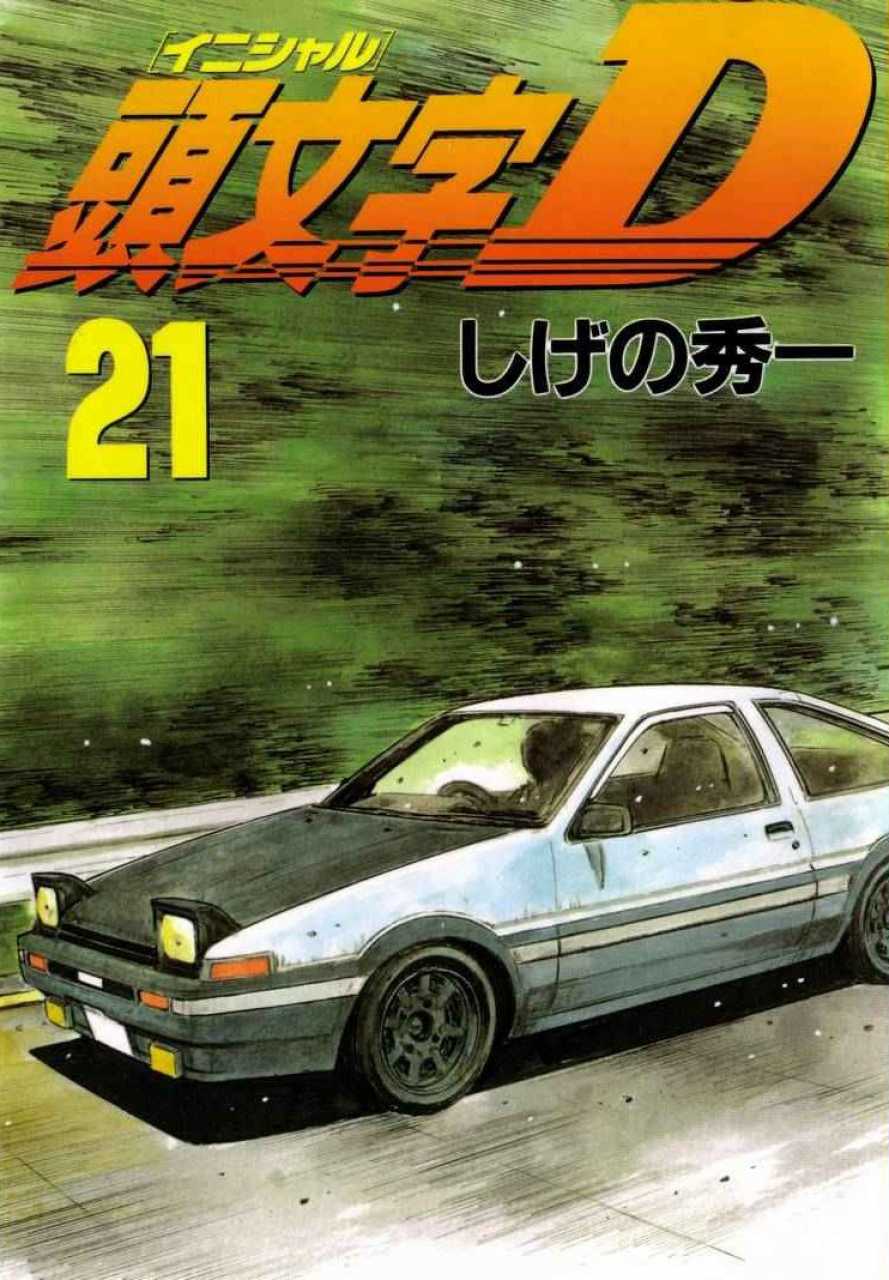 Initial D written and drawn by Shûichi Shigeno is a street racing sports manga. The manga was pre-published from 1995 to 2013 in Young Magazine with 48 volumes to its credit. Synopsis: Takumi and his friend Itsuki, are high school students and work part-time to earn a living at a gas station. One lives with his head in the clouds and the other is passionate about cars and street racing. Takumi has been in charge of delivering tofu since he was 13 years old with his father's car. He then acquired an unparalleled mastery of drifting. The legend of the Toyota AE86 of Mount Akina is on the move! Initial D is a work that is both simple and complex. Shûichi Shigeno has the difficult task of transcribing car races with speed and tension. The challenge is not within everyone's reach. Nevertheless, he manages to make his story believable and authentic. Amateur of races the hero benefits from the advice of a whole team specialized in mechanics, drifting, etc. The work is also extremely well documented. These street races are also well organized logistically. One of the many highlights of the series is the driver/car relationship. The personality of the drivers is in line with the car. For example Takumi is usually nonchalant and his Trueno 86 is not very fast compared to opposing cars. Takumi is a kind of anti-hero ignoring his talent. The drawings are uneven, the characters are a little messy but the cars and races are of a dazzling accuracy and intensity ! In summary, Initial D is a founding title, a precursor in its genre.
Initial D written and drawn by Shûichi Shigeno is a street racing sports manga. The manga was pre-published from 1995 to 2013 in Young Magazine with 48 volumes to its credit. Synopsis: Takumi and his friend Itsuki, are high school students and work part-time to earn a living at a gas station. One lives with his head in the clouds and the other is passionate about cars and street racing. Takumi has been in charge of delivering tofu since he was 13 years old with his father's car. He then acquired an unparalleled mastery of drifting. The legend of the Toyota AE86 of Mount Akina is on the move! Initial D is a work that is both simple and complex. Shûichi Shigeno has the difficult task of transcribing car races with speed and tension. The challenge is not within everyone's reach. Nevertheless, he manages to make his story believable and authentic. Amateur of races the hero benefits from the advice of a whole team specialized in mechanics, drifting, etc. The work is also extremely well documented. These street races are also well organized logistically. One of the many highlights of the series is the driver/car relationship. The personality of the drivers is in line with the car. For example Takumi is usually nonchalant and his Trueno 86 is not very fast compared to opposing cars. Takumi is a kind of anti-hero ignoring his talent. The drawings are uneven, the characters are a little messy but the cars and races are of a dazzling accuracy and intensity ! In summary, Initial D is a founding title, a precursor in its genre.
"Too Fast, too furious. »
7. Ashita no Joe
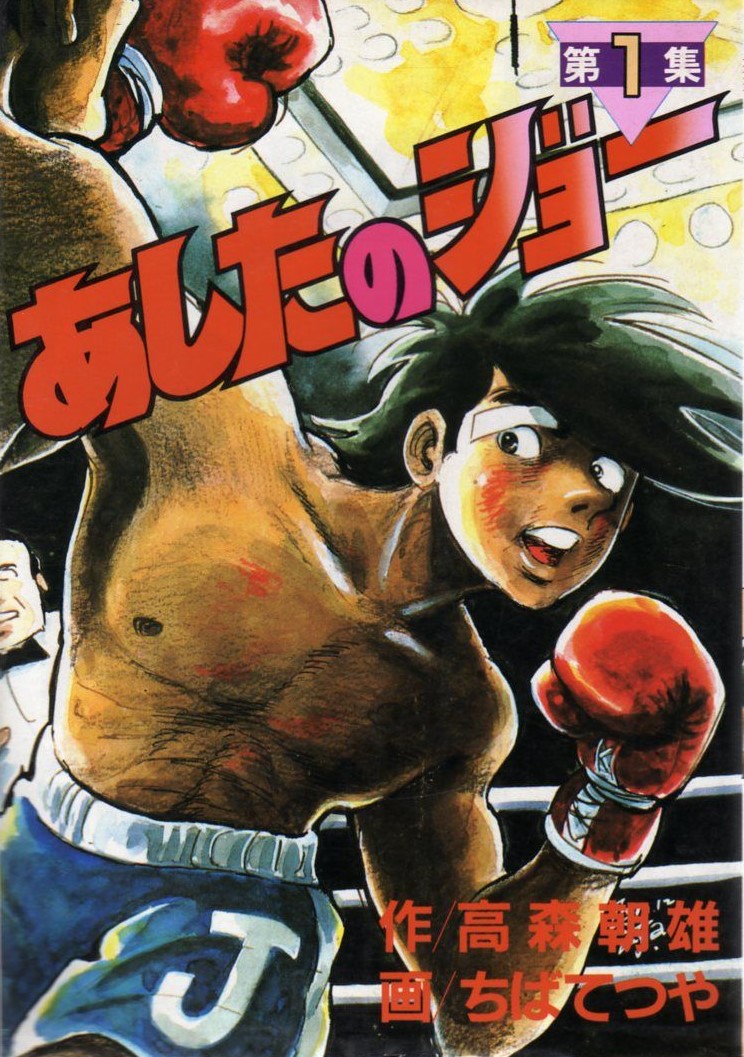 Ashita no Joe en 20 volumes, is written by Tetsuya Chiba on a screenplay by Asao Takamori. The Japanese comic has sold more than 16 million copies. The work is perceived as a cult and essential manga about Japanese sport and society. Synopsis: Joe Yabuki, 15, is a young brawling and violent orphan. During an altercation in a slum, he is spotted by a fallen former boxer and wants to make him a world-class boxer. This series will lay the foundation for nekketsu manga for years to come. Beyond this aspect, Ashita no Joe is a story of character. Joe Yabuki is a character who seems to be an anti-hero, angry, impulsive. He has everything to be detestable. Only, his character will lead him to the lowest. He will then go up the slope thanks to this strength but also thanks to the other characters parallel to the story, opponents, rivals and friends. With this social aspect, we can wonder what their destiny will be, if they will emerge unscathed from this violence that damages their bodies but represents their only reason for living. This is representative of the shortcomings of Japanese society at the time with the youth revolt of 1968, the longest and most violent in the world.
Ashita no Joe en 20 volumes, is written by Tetsuya Chiba on a screenplay by Asao Takamori. The Japanese comic has sold more than 16 million copies. The work is perceived as a cult and essential manga about Japanese sport and society. Synopsis: Joe Yabuki, 15, is a young brawling and violent orphan. During an altercation in a slum, he is spotted by a fallen former boxer and wants to make him a world-class boxer. This series will lay the foundation for nekketsu manga for years to come. Beyond this aspect, Ashita no Joe is a story of character. Joe Yabuki is a character who seems to be an anti-hero, angry, impulsive. He has everything to be detestable. Only, his character will lead him to the lowest. He will then go up the slope thanks to this strength but also thanks to the other characters parallel to the story, opponents, rivals and friends. With this social aspect, we can wonder what their destiny will be, if they will emerge unscathed from this violence that damages their bodies but represents their only reason for living. This is representative of the shortcomings of Japanese society at the time with the youth revolt of 1968, the longest and most violent in the world.
"Joe Yabuki is going through a lot… and he inflicts almost all of them on himself. »
8. Major
 Major is a baseball manga that appeared in Weekly Shônen Sunday from 1994 to 2010. It was compiled in 78 volumes. Takuya Mitsuda is the author of this sports shōnen. Major follows Goro Honda's life from elementary school to his career as a professional baseball player. Initiated by his father, the story focuses on how he overcomes enormous challenges and trials during his sporting and personal life. One of the major sports on the archipelago of the rising sun is baseball from the West. Major is the journey of a young boy, Goro Honda, becoming a man. This is not a classic story mixing training / matches even if it remains dominant overall. The evolution of the character as well as his moments of doubt are linked to the other characters of the series who will have a strong impact on his life. The author will use these relationships to address various topics such as rivalry, surpassing oneself, abandonment, sports reconstruction, family, emancipation, or racism. Confident, having higher than average abilities thanks to his father and his drastic training, the manga questions the themes of innate and acquired that will play a role during the games and in his way of seeing baseball. The explanation of the rules is well brought allowing an easy and fun immersion. In the end, the manga breaks the codes by its dramatic and human aspect.
Major is a baseball manga that appeared in Weekly Shônen Sunday from 1994 to 2010. It was compiled in 78 volumes. Takuya Mitsuda is the author of this sports shōnen. Major follows Goro Honda's life from elementary school to his career as a professional baseball player. Initiated by his father, the story focuses on how he overcomes enormous challenges and trials during his sporting and personal life. One of the major sports on the archipelago of the rising sun is baseball from the West. Major is the journey of a young boy, Goro Honda, becoming a man. This is not a classic story mixing training / matches even if it remains dominant overall. The evolution of the character as well as his moments of doubt are linked to the other characters of the series who will have a strong impact on his life. The author will use these relationships to address various topics such as rivalry, surpassing oneself, abandonment, sports reconstruction, family, emancipation, or racism. Confident, having higher than average abilities thanks to his father and his drastic training, the manga questions the themes of innate and acquired that will play a role during the games and in his way of seeing baseball. The explanation of the rules is well brought allowing an easy and fun immersion. In the end, the manga breaks the codes by its dramatic and human aspect.
"I swing with everything I have. I hit hard or I miss hard. I like to live as hard as I can. »
9. Fighting Rooster (Shamo)
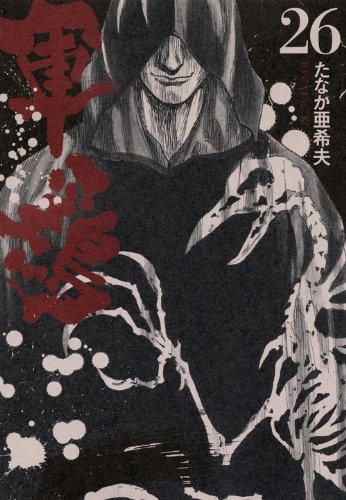 Fighting Rooster is a work written by Izo Hashimoto and drawn by Akio Tanaka. He appeared in Weekly Manga Action from 1998 to 2003 and in Evening magazine from 2005 to 2015. The manga has 34 volumes and deals with the themes of martial arts and political satire. Synopsis: Ryō Narushima, only 16 years old, is being placed in a reformatory for his violent acts. He will discover violence and humiliation in turn within the penitentiary. An inmate, expert in karate will teach him the basics to be able to make a real "Fighting Rooster". From the outset, we have a violent, shocking and strong title. Murders, sexual violence, drugs or prostitution, the manga is distressing to lead to criticism of the society that makes slaves. The social significance of the work is reflected in the denunciation of society that glorifies violence. The satirical scope concerns modern society which is conditioned by consumption, forced education or abusive production. To bring a second vision, the authors will create a character in total contradiction to Ryô, a martial arts adept who advocates wisdom, self-denial and respect. Ryô, on the other hand, is a representation of the lawless society, of dehumanized man. On the drawing side, Akio Tanaka's features are a pure marvel. The violent side is multiplied by its shadows and the use of Indian ink. In short, Fighting Rooster is a condemnation of violence through martial arts that originally incorporated a spiritual and moral dimension aimed at self-control.
Fighting Rooster is a work written by Izo Hashimoto and drawn by Akio Tanaka. He appeared in Weekly Manga Action from 1998 to 2003 and in Evening magazine from 2005 to 2015. The manga has 34 volumes and deals with the themes of martial arts and political satire. Synopsis: Ryō Narushima, only 16 years old, is being placed in a reformatory for his violent acts. He will discover violence and humiliation in turn within the penitentiary. An inmate, expert in karate will teach him the basics to be able to make a real "Fighting Rooster". From the outset, we have a violent, shocking and strong title. Murders, sexual violence, drugs or prostitution, the manga is distressing to lead to criticism of the society that makes slaves. The social significance of the work is reflected in the denunciation of society that glorifies violence. The satirical scope concerns modern society which is conditioned by consumption, forced education or abusive production. To bring a second vision, the authors will create a character in total contradiction to Ryô, a martial arts adept who advocates wisdom, self-denial and respect. Ryô, on the other hand, is a representation of the lawless society, of dehumanized man. On the drawing side, Akio Tanaka's features are a pure marvel. The violent side is multiplied by its shadows and the use of Indian ink. In short, Fighting Rooster is a condemnation of violence through martial arts that originally incorporated a spiritual and moral dimension aimed at self-control.
"Those who are brutal with you are representative of what is lowest in the human being. »
10. Dream Team (Ahiru no Sora):
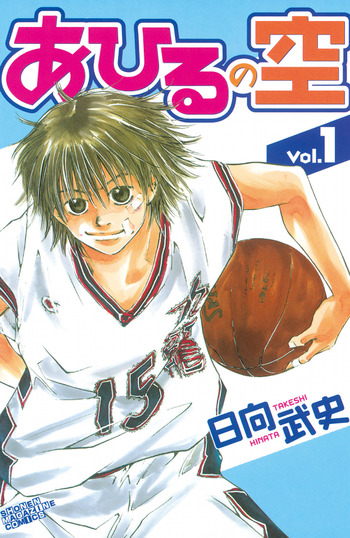 This shōnen by Takeshi Hinata who talks about basketball is called Dream Team. It is published in Weekly Shônen Magazine and currently has 51 volumes with no less than 24 million copies sold. Synopsis: Sora Kurumatani is passionate about basketball! He knows how to do everything on a pitch, his only "flaw", being small. Despite this, he wants to create a team capable of winning. However, the players of his high school are hotheads who do not take this discipline seriously. This is the starting point of a great ambition! Dream Team is sort of the spiritual son of Slam Dunk. At first, the author will pleasantly punctuate the plot and the characters until giving it its own identity. We also find the humor of furyos as in GTO or Slam Dunk. The big difference in a second time is the way the author will approach effort, victory and defeat through the impact that can have on each character. Even superhuman effort will not always save a match as in many manga. This creates a rather confusing sense of unpredictability . The author's trait is close to the style that can be found in the shōjo category. A simple and light drawing that gives fluidity to the action and surprises us with masterful double pages!
This shōnen by Takeshi Hinata who talks about basketball is called Dream Team. It is published in Weekly Shônen Magazine and currently has 51 volumes with no less than 24 million copies sold. Synopsis: Sora Kurumatani is passionate about basketball! He knows how to do everything on a pitch, his only "flaw", being small. Despite this, he wants to create a team capable of winning. However, the players of his high school are hotheads who do not take this discipline seriously. This is the starting point of a great ambition! Dream Team is sort of the spiritual son of Slam Dunk. At first, the author will pleasantly punctuate the plot and the characters until giving it its own identity. We also find the humor of furyos as in GTO or Slam Dunk. The big difference in a second time is the way the author will approach effort, victory and defeat through the impact that can have on each character. Even superhuman effort will not always save a match as in many manga. This creates a rather confusing sense of unpredictability . The author's trait is close to the style that can be found in the shōjo category. A simple and light drawing that gives fluidity to the action and surprises us with masterful double pages!
"Each person has their own way of shooting. Depending on his personality. »



































